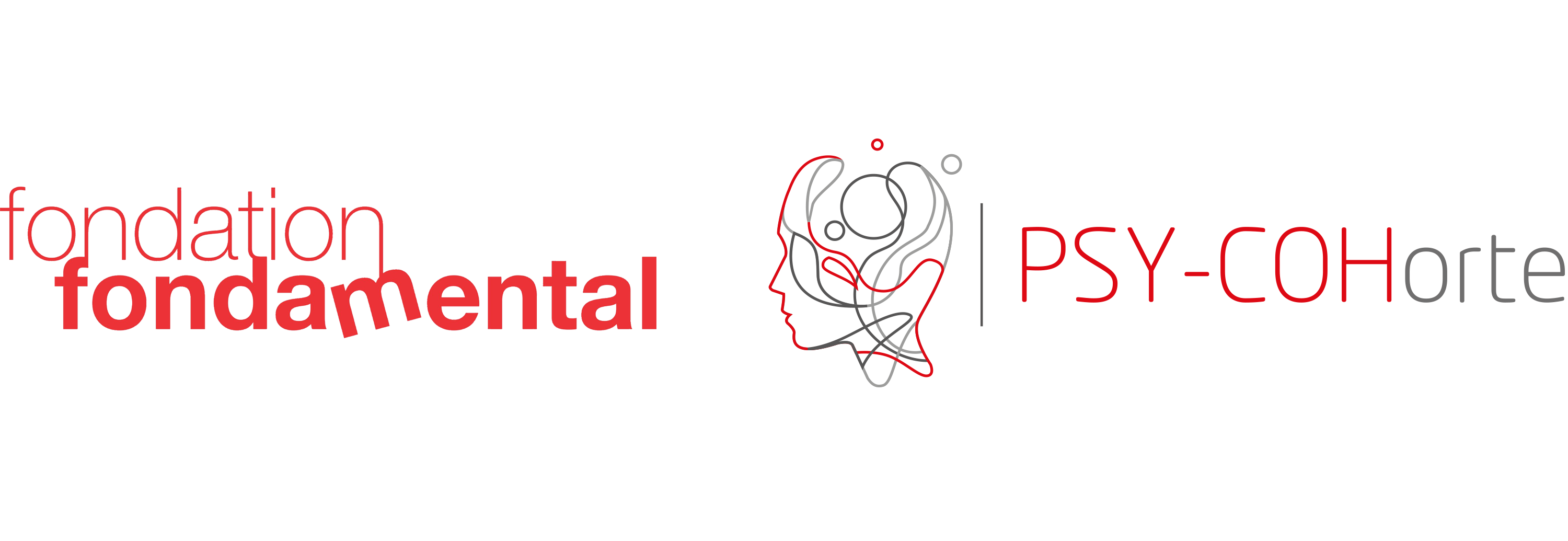
PSY-COHorte-Schizophrénie, qu’est-ce que c’est ?
C’est une cohorte nationale sur la schizophrénie. Son objectif principal est le recueil et le suivi de données cliniques, économiques, environnementales, sociodémographiques et biologiques afin de décrire et caractériser les différents stades d’évolution de la pathologie et d’identifier des marqueurs biologiques associés à chaque stade.
PSY-COHorte-SZ sera constituée de 400 personnes atteintes de schizophrénie qui seront suivies pendant la durée du programme.
PSY-COHorte-SZ est une étude du programme PSY-COHorte. Ce programme se décline également pour le suivi de patients atteints de troubles bipolaires (PSY-COHorte-BP).
Le programme PSY-COHorte s’appuie sur le réseau national des Centres Experts FondaMental et sur un réseau de laboratoires de recherche (Inserm, CEA, CNRS, Institut Pasteur,…).
Au nombre de 43 et hébergés au sein de services hospitaliers, les Centres Experts FondaMental sont spécialisés dans l’évaluation, le diagnostic et l’aide à la prise en charge des troubles bipolaires et de la schizophrénie.
PSY-COHorte est une étude clinique qui obéit à la réglementation et la législation en vigueur sur la recherche biomédicale. Elle a été autorisée par l’Agence Nationale de Sécurité du Médicament et des Produits de Santé et a reçu un avis favorable d’un Comité de Protection des Personnes. Elle respecte également les dispositions de la loi informatique et liberté.
Avancement et publications du programme Schizophrénie
Pourquoi est-ce important de participer ?
Votre participation contribue à mieux comprendre la maladie, à identifier de nouveaux outils diagnostiques et pronostiques et à faire émerger des nouvelles pistes thérapeutiques.
Quels sont les objectifs de PSY-COHorte-SZ ?
• Décrire et mieux caractériser les différents stades évolutifs de la schizophrénie en fonction de critères cliniques, psychologiques et biologiques ;
• Identifier des facteurs biologiques et environnementaux associés à l’évolution de la maladie ;
• Construire une plateforme de recherche sur la schizophrénie permettant, grâce au développement de partenariats publics et privés, la mise en place de projets de recherche pour améliorer les outils diagnostiques et thérapeutiques pour les patients atteints de schizophrénie.
Qui peut y participer ?
Les personnes répondant aux critères de schizophrénie du DSM-IV et dont le début de la maladie (fixé à date du premier traitement antipsychotique) remonte à moins de 10 ans.
En quoi consiste la participation à la PSY-COHorte-SZ ?
En tant que participant, vous aurez rendez-vous une fois par an, pour une évaluation clinique, dans l’un des Centres Experts FondaMental Schizophrénie. Il vous sera également demandé une prise de sang tous les deux ans.
Comment participer ?
Contactez-nous par mail à psycohorte.sz@fondation-fondamental.org Nous vous orienterons alors vers le Centre Expert FondaMental le plus proche de chez vous.
Lors du premier rendez-vous, un document d’information vous sera remis, ainsi qu’un formulaire de consentement éclairé. Ces documents vous apporteront toutes les précisions sur le déroulement du projet, son calendrier et l’indemnisation prévue.
personnes atteintes de schizophrénie seront suivies durant le programme.
Pour continuer à améliorer la qualité scientifique de la cohorte, les inclusions sont prolongées jusqu’au 31/12/2020 et les suivis jusqu’au 31/12/2024
Direction scientifique du projet PSY-COHorte-SZ :
Investigateur coordinateur :
Pr Pierre-Michel Llorca
CHU de Clermont-Ferrand,
Fondation FondaMental
Responsable scientifique :
Pr Marion Leboyer
UPEC, AP-HP, Inserm
Fondation FondaMental


